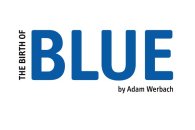
The Blue movement focuses on helping the environment with daily small activities that benefit the environment and that add to an individual’s well-being. The objectives of the Blue platform are for individuals to create a Personal Sustainability Program (PSP) focusing on daily behaviors that:
- Sustain the planet
- Make you happy
- Affect the community
- Take visible action
Green environmentalism, originating in the 1960s, stressed the moral responsibility and consequences of environmental pollution. According to Werbach, it places corporations and the individual as part of the problem, and requires strict adherence to conservationism. He argues that this movement has ultimately been ineffective in changing policy and influencing behavior.
Conversely, Blue environmentalism centers on improving the lives of those who participate, engaging a much larger segment of the population and increasing the effectiveness of activism. People can be Blue by simply making healthy breakfast for kids, implementing compact fluorescent (CFL) light bulbs and doing more recycling. It further emphasizes price (can I afford it?), purpose (does it fit into the healthy practices of your life?) and process (is the product manufactured environmentally?).
One example cited by Werbach was a woman’s PSP to make a greater effort to recycle. Ultimately she lost weight and controlled her diabetes, while protecting the earth with proper food. She became an ardent supporter of the movement, given the change that it made in her personal life.
Another major difference between Blue and Green movements is that corporations are integral in the Blue movement. The rationale is that Wal-Mart and McDonalds serve billions of people all over the world and have tremendous influence often above and beyond that of governments. Werbach cites a McDonald’s moratorium on soy for its chicken used in nuggets, which ultimately saved thousands of acres of farmland.
If this movement is successful, it has profound implications on business. It would build a new marketing platform that is consumer-friendly and focused on both the consumer’s and earth’s well-being. Companies could ostensibly choose between Green and Blue marketing. Last, they could build an emotional connection with die-hard blue consumers.


